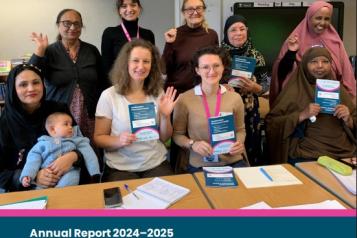Why Losing Independent Patient Voice Harms Us All
Lost Independence, Lost Power
The Dash review, on which the 10 Year Plan was based, has now been published.
It fails to mention that Healthwatch provides independence to patient voice, to recognise the importance of working at a borough level, or to provide any analysis of why these are important.
For over 50 years, there has been an independent, local patient voice body, curbing the worst impacts of cuts, ensuring that decisions considered patient needs and championing quality. Whilst the body delivering this work changed from time to time, its independence in presenting patient and public experience has been a core and valued part of the NHS, and more recently social care, system.
Independence is what gives patient voice power. The local focus is what allows it to influence the things that really matter to our community. By moving the patient voice role into ICBs like NHS South West London, both are lost.
In Hampton, it was the independent local support that we were able to give that led to a much needed new pharmacy which opened in April 2025. By supporting the calls of patients, Councillors and MPs with the experiences that we collected from hundreds of Hampton residents and using our statutory powers, together, we were successful at delivering this vital change.
This isn't an isolated case; we've secured increased funding for NHS Dentistry in Richmond, improved mental health services, and positively impacted everything from maternity care to A&E. All of these have improved because we were able, independently, to collect patient experiences and use them to challenge the system. As evidenced by its failure to do so and our MPs comments in Parliament in relation to the Hampton Pharmacy closures, the system cannot effectively challenge itself or prioritise the vital interests of communities like those in Hampton.
The NHS and care system is better because of the experiences that people have shared with us. Whilst the 10 Year Plan does not seem to value this independence, our colleagues in Local Government, across the NHS, in the CQC and beyond most certainly do.
As things stand, support for patient voice will move into the NHS when Healthwatch closes, albeit we don’t know when that will be. The main route for sharing feedback will be via the NHS App and its AI powered analysis. When this happens, any independent support and local expertise that patients could until now expect will be lost.
When communities need to challenge NHS decisions in the future, there will be no independent body to champion their needs.
What’s next?
We will continue to deliver our role until the legislation changes, helping people to find the information they need, using our powers to make care better and to influence rollout of the 10 Year Plan.
Like our predecessors, Healthwatch can be replaced but independent patient voice must also be replaced. Healthwatch can be allowed to end, but if independent local patient voice ends with us, it will be a significant loss for us all.
Abolishing both the local and the independent aspects of patient voice and placing this within the organisations that people need support to influence is a step in the wrong direction and will be damaging to the quality of care.
People deserve an independent body that can take time to understand them, work on the things that matter to them, speak truth to power, ensure that decision makers understand their interests and hold the system to account when things go wrong.
We urge the Secretary of State to reconsider the decision to end independent local patient voice, and ask our colleagues in Parliament, local government, the CQC and the NHS to advocate for this.


